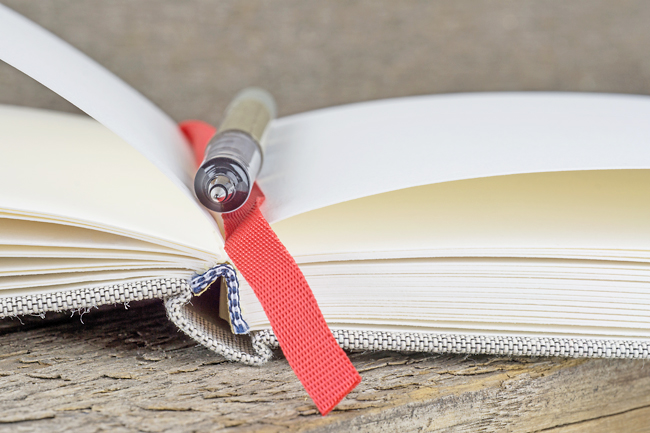Serving as a meaningful dialogue with oneself, journaling goes past just simple note-taking as it offers a haven for thoughts and a platform for one’s creative exploration. For many, the excitement of a new journal often fades when faced with the blank pages.
Yet, developing a journaling habit can be a rewarding endeavour, enhancing emotional clarity and personal growth. This guide provides insights tailored to those ready to begin their journaling journey with purpose and ease.
WHY JOURNAL?
It acts as a mental outlet, helping to organise thoughts, reduce stress and enhance self-awareness. It serves diverse purposes, from documenting life events to brainstorming ideas or processing emotions.
The inherent versatility of journaling makes it accessible to everyone, regardless of writing skill or artistic ability. It’s a space where perfection is irrelevant; the focus is on authenticity and self-expression, especially for those who find difficulty in confiding in another person.
The practice is also deeply personal. Whether your entries take the form of meticulous prose, fragmented thoughts, or visual sketches, the essence of journaling lies in its ability to adapt to your needs.
Developing a consistent journaling habit doesn’t have to be overwhelming. Choosing the right journal and writing instruments can set the tone for your practice. Opt for a notebook that appeals to you – whether a sophisticated leather-bound journal or a minimalist spiral notebook.
Similarly, select a pen that feels comfortable and enjoyable to use, as small details can influence your enthusiasm. For those inclined towards technology, consider digital options like journaling apps, which often include prompts and organisation features.
Designate a quiet, inviting space for journaling. A corner with soft lighting, a warm drink or a candle can help create an atmosphere conducive to reflection. Treat this time as a ritual – an intentional pause in your day.
Set achievable expectations, such as writing for five minutes daily. Starting small reduces pressure and allows the habit to develop organically. Remember, the quality of your entries matters far more than their length.



IDEAS TO INSPIRE YOUR WRITING
If faced with a blank page, consider the following prompts to ignite your creativity:
Gratitude List: Document three things you are thankful for each day to foster positivity.
Daily Reflection: Capture a memorable moment from your day and its significance.
Stream of Consciousness: Write freely without worrying about structure or coherence.
Dream Log: Record your dreams immediately upon waking to uncover subconscious patterns.
Goal Articulation: Outline your aspirations and break them into actionable steps.
Mood Mapping: Use words, colours, or symbols to depict your emotional state.
BUILDING CONSISTENCY
Consistency underpins a successful journaling practice. It is the foundation of a successful journaling practice. To make journaling a seamless part of your routine, identify a time that aligns with your daily rhythm. Morning journaling can be an excellent way to set focus and intention for the day ahead, while evening journaling provides an opportunity to unwind and reflect on the day’s events.
Using prompts is another effective strategy for building consistency. Prompts eliminate the intimidation of a blank page, offering a clear starting point for your thoughts. Over time, as journaling becomes more natural, you may find inspiration comes to you without the need for prompts.
It is essential to prioritise feasibility when incorporating journaling into your life. Rather than committing to lengthy sessions, aim to write a few sentences each day. This approach is more sustainable and reduces the pressure that can lead to procrastination. Small, consistent efforts are often more impactful than sporadic but lengthy writing sessions.
Reviewing past entries can also reinforce your journaling habit. Reflecting on your earlier writings can be both motivating and enlightening, as it allows you to track your growth and recognise your achievements. This practice offers a tangible sense of progress and reinforces the value of journaling in your life.
ADDRESSING COMMON MYTHS
Several misconceptions deter people from journaling. One common belief is, “I’m not a skilled writer.” However, journaling isn’t about literary prowess but about self-expression.
Mistakes, informal language, and even incomplete thoughts are entirely welcome. Another misconception is, “I lack time”.
Journaling does not require hours of your day; even a few minutes can make a meaningful difference. The act is more about presence than duration.
Lastly, some may think, “My life isn’t noteworthy.” Journaling, however, captures the beauty of ordinary moments, encouraging mindfulness and appreciation for the small but significant aspects of life.
Beyond its primary purposes, journaling often delivers unexpected benefits. It provides emotional catharsis by offering a safe outlet for processing complex feelings. The act of writing can also enhance problem-solving skills, as articulating challenges often leads to clearer solutions.
Increased self-awareness is another advantage, as patterns in thoughts and behaviours become more evident over time.
Finally, your journal evolves into a chronicle of growth, reflecting your journey and milestones along the way. These benefits underscore the richness journaling can bring to your personal development.
EXPERIMENTATION AND EXPLORATION
Journaling is highly adaptable, so experiment to discover what resonates with you. Alternate between structured formats and freeform writing. Some days may call for detailed entries, while others may inspire abstract sketches or brief notes. Let your journaling practice evolve naturally alongside you.
Journaling is a gateway to self-discovery, creativity, and mindfulness. It provides a private space to reflect, dream, and grow. Starting is simple: pick up your journal and write whatever comes to mind. With time, your practice will deepen, and your journal will become a treasured companion. – Features Desk


